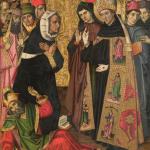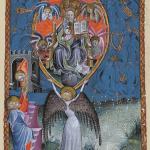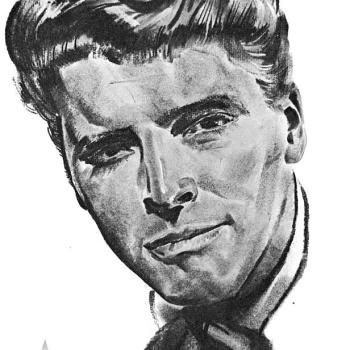Camacho’s antics after Morales’ ouster are suggestive:
When Luis Fernando Camacho stormed into Bolivia’s abandoned presidential palace in the hours after President Evo Morales’s sudden November 10 resignation, he revealed to the world a side of the country that stood at stark odds with the plurinational spirit its deposed socialist and Indigenous leader had put forward.
With a Bible in one hand and a national flag in the other, Camacho bowed his head in prayer above the presidential seal, fulfilling his vow to purge his country’s Native heritage from government and “return God to the burned palace.”
“Pachamama will never return to the palace,” he said, referring to the Andean Mother Earth spirit. “Bolivia belongs to Christ.” (“Bolivia Coup”)
Never mind that Bolivia is around 94% Christian, Camacho, both in his words here and his career more generally, seems to conflate a strange sort of evangelical devotional zealousness with an openness to international markets and a need to push aside the country’s indigenous population. His family’s ties to foreign liberal entities and religious organizations are instructive; no surprise, then, that the piece above from teleSUR calls him “Bolivia’s Boslonaro.”
The connections I am drawing here are intended to be suggestive. Evangelicalism cannot merely be reduced to a certain brand of Americanized politics and culture. Such simplistic ideas of cause and effect will not generally do in large-scale social equations (if “equation” is even the right metaphor here). What can be said, however, as a matter of historical fact is that America and American groups encouraged the spread of evangelical religion for a variety of interrelated reasons: political liberalization, resource extraction, the threat of liberation theology, among many others. Correlations may, and must be, drawn. Daniel Hunt has summarized the problem in the Brazilian context well:
Of course, there is not a straight line from Rockefeller to SIL/WBT to Macedo to Silva to Bolsonaro. Yet it is clear that over and over during the last half century, the interests of evangelical Protestantism and US imperialism have converged, while liberation theology and efforts to secure Brazilian sovereignty over its resources have been pushed to the margins. Yet it is undeniable that the US saw liberation theology as a threat and that it desire for resource extraction in the Amazon found a willing partner in Townsend’s Bible translators. It is no coincidence that the individualistic, prosperity-driven faith of Macedo’s UKCG and other Brazilian Neopentecostal churches has so much in common with neoliberalism’s rejection of the state and society in favor of the individual, for they are both imported from the US – the former from the tent revivals of the Midwest, the latter from Washington’s economic and political powerbrokers. In the Amazon, the marriage between evangelicalism and imperialism sought to stifle indigenous opposition to resource extraction. In Brazil’s cities today, the marriage between Neopentecostalism and neoliberalism has produced candidates and an electorate that believe that prosperity is the product of meritocratic individual effort. Believers conditioned to unquestioningly accept the voice of their pastor as the voice of God seldom hesitate to accept as equally authoritative the voice of a would-be dictator like Bolonsaro. The same vengeful God who in church promises damnation to the disobedient now promises to smite in this life LGBT people, petty criminals, and indigenous people, and anyone else who crosses Bolsonaro. (“Thy Will Be Done: Brasil’s Holy War”)













